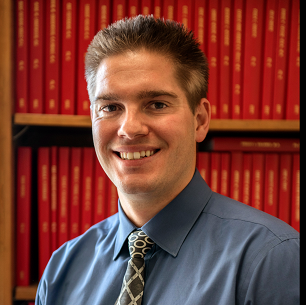Oct 27, 2021

How does St. Clair College fit into the overall research landscape in Windsor-Essex?
Creating and growing a diverse and multi-functional research ecosystem is imperative to driving innovation, improving health outcomes, providing solutions, and training the next generation. Research takes place at multiple types of institutions, including universities, colleges, hospitals, and within industry. Research at colleges, while relatively new, focuses mostly on applied work that addresses practical challenges in our communities and beyond. Developing a research culture takes time and effort from multiple stakeholders. While there are still great opportunities for growth in this area at the college, collective efforts have resulted in St. Clair College recently being named one of the top 50 research colleges in Canada1.
Why should college faculty engage in research?
At the college, professors’ primary responsibilities are teaching-based. These duties can make it difficult to find the time to engage in research. That said, the experience of conducting research has been extremely fulfilling. As far as I can tell, the importance of college faculty engaging in research is three-fold:
(1) Applied Research fosters unique collaboration with community and industry partners. This work provides a wonderful opportunity to collaborate with local stakeholders and to create meaningful change in our community. These partnerships provide the college with another avenue for community engagement, which is central to St. Clair College’s mission.
(2) Applied Research helps professors to develop contemporary knowledge to draw upon when teaching. Many college professors bring extensive educational and professional experience to the classroom. Being engaged in research projects, provides professors with further opportunities to immerse themselves in their field. Ultimately, the students benefit because their professors not only have an awareness of current research to share but begin to contribute to the knowledge production of their field. Since most of the work is applied, lesson plans can be easily amended to touch on new findings, as well as contain real-world examples that are directly applicable for students. Being on the cutting edge is critical for preparing graduates to be responsive to the everchanging world we live in.
(3) Perhaps most importantly it allows for student engagement in applied research projects. Applied research is typically not a one-person endeavor; it requires a team, with roles ranging from research assistants to student volunteers. These experiences provide students with an opportunity to learn meaningful and relevant skills in their respective fields. Being part of research projects is also a great way to make connections with local community groups and partners. Faculty-led research at colleges provides a unique way for students to excel and learn in ways they couldn't before.
As a college professor, what kind of research are you engaged with?
There are many ongoing research projects I am currently working on with students and various collaborators. The main focus of my research program is inclusive education. I am particularly interested in students’ attitudes toward disability and how attitudes impact social inclusion in elementary schools settings. I have recently published a literature review on this topic2, developed a 12-lesson intervention3, tested the effects of this intervention in a recent quantitative study4, and examined how students conceptualize disability in a qualitative study5. Our team is now working on expanding upon this work to with a larger and more diverse sample.
How is this being funded?
This project is funded by the Igniting Discovery Grant from the WE-SPARK Health Institute. It is also funded in partnership with the Canadian Tire Jumpstart Charities.
How can people contact you if they want to learn more?
The best way to connect with me is via email at jfreer@stclaircollege.ca
About the Expert:
Dr. John Freer is a Professor in the School of Community Studies at St. Clair College in Windsor, Ontario. He is the coordinator of the Educational Support program and helps to train students interested in pursuing a career in special education. Dr. Freer is also an Adjunct Assistant Professor in the Faculty of Education at the University of Windsor, where he teaches primarily in the areas of educational psychology and special education. Prior to his work in higher education, John worked in the K-12 education system as an EA (educational assistant).
Resources:
1. https://www.stclaircollege.ca/news/2020/st-clair-among-top-research-colleges-canada
2. https://www.researchgate.net/publication/348354723_Students'_attitudes_toward_disability_a_systematic_literature_review_2012-2019
3. https://www.researchgate.net/publication/348905305_The_Tripartite_Intervention_Breaking_Down_Attitudinal_Barriers_in_Education
4. https://www.researchgate.net/publication/350689301_The_effects_of_the_Tripartite_Intervention_on_students'_attitudes_towards_disability
5. https://www.researchgate.net/publication/353104979_A_picture_is_worth_1000_words_examining_students'_understanding_of_disability_in_definitions_and_drawings




